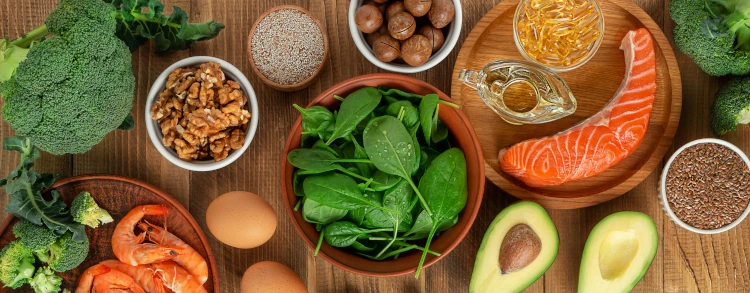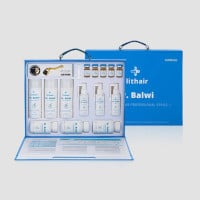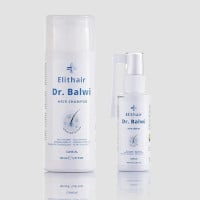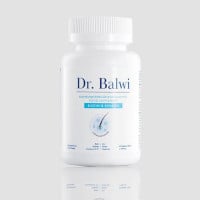
7 Best Foods for Hair Growth
As much as your hair is a reflection of your personal style, it’s also a gauge of your overall health. If your hair is thinning, shedding excessively, or looking dull and lifeless, your diet could be partly to blame.
While many people turn to topical treatments or expensive hair products to fix these issues, true hair health starts from within. A balanced, nutrient-rich diet is essential for your well-being — as well as for maintaining strong, vibrant hair.
The foods you eat play a central role in supporting the natural hair growth cycle, maintaining scalp health, and preventing common issues like breakage and thinning. Also, keep in mind that certain vitamin and mineral deficiencies are associated with hair loss.
If you’re looking for a more natural, sustainable way to improve your hair, start by taking a closer look at your plate. Below, we’ll explore how nutrition impacts the hair growth process and highlight seven nutrient-packed foods that can help strengthen your strands from root to tip.
How Nutrition Impacts the Hair Growth Cycle
Hair growth is a complex biological process that relies on the health of your scalp, the condition of your hair follicles, and, most crucial, your nutritional intake. Hair is made primarily of a protein called keratin, and its growth depends on your body’s ability to synthesize this protein and support the follicles where hair begins.
There are three phases of the hair growth cycle: anagen (growth), catagen (transition), and telogen (rest). Each hair strand is in a different phase at any given time, and your body’s nutrient reserves play a huge role in regulating this cycle.
Nutrient deficiencies can disrupt the hair growth cycle and may contribute to a higher percentage of follicles entering the telogen (resting) phase, which can lead to shedding. However, hair loss is typically multifactorial.
On the other hand, when you consistently consume a variety of hair-supporting nutrients, like biotin, zinc, iron, and omega-3 fatty acids, you provide your follicles with the fuel they need to produce strong, resilient hair.
A balanced diet can help your hair grow faster, but it can also improve texture, volume, shine, and overall scalp health.
7 Foods That Help Hair Growth

Incorporating these whole, nutrient-dense foods into your daily routine can make a significant difference in how healthy your hair is and how beautiful it looks over time.
Eggs
Eggs are one of the best sources of two essential nutrients for healthy hair: protein and biotin.
Protein is the foundation of hair, and consuming enough of it helps your body build strong hair fibers. A lack of protein in your diet may cause weak, brittle strands or even hair loss. Meanwhile, biotin (vitamin B7) plays a vital role in the production of keratin. Without it, hair growth slows down, and the hair you do grow may be more prone to breakage.
Additionally, clinical evidence supports the role of biotin deficiency in hair loss. However, biotin supplementation is only beneficial in people with a documented deficiency, which is rare in healthy individuals.
In this way, incorporating eggs into your breakfast or lunch routine a few times per week can give your hair a consistent boost of the nutrients it needs to grow and thrive.
Salmon
Salmon is a top-tier food for scalp and follicle health, since it’s rich in omega-3 fatty acids, protein, and vitamin D. Aim to eat fatty fish like salmon one to two times a week to get the best results for your hair.
Omega-3 fatty acids may support scalp health and reduce inflammation, which can create a healthier environment for hair growth. Some small studies suggest a possible benefit for hair density and shedding, but more research is needed. In addition to improving hair health, omega-3s benefit your heart, brain, and skin, so adding salmon to your diet is a win all around.
Spinach
This leafy green is incredibly nutritious and great for your overall well-being, including when it comes to supporting hair growth. Spinach is loaded with iron, vitamin A, vitamin C, and folate, all of which you need to nourish your hair follicles and maintain a healthy scalp.
Iron deficiency is one of the most common nutritional causes of hair loss, particularly in premenopausal women.
Eating more spinach can help replenish your body’s iron stores and provide vitamin C, which improves iron absorption and supports collagen production for stronger strands.
As often as you’re able, add spinach to your diet — try putting it in salads, smoothies, or stir-fries to quickly and easily boost your nutrient intake.
Sweet Potatoes
Sweet potatoes are a great source of beta-carotene, which the body converts into vitamin A, a nutrient that supports a healthy scalp environment by encouraging sebum production. It also plays a role in the cell turnover process, helping to generate new skin cells — including those in your scalp.
Just one medium sweet potato contains more than 100% of your daily vitamin A needs. Roasted, mashed, or baked, it’s a delicious and versatile addition to your diet. However, excessive vitamin A intake, especially from supplements, can lead to hair loss, so it’s important to be mindful of how much you’re consuming.
Avocados
Creamy and satisfying, avocados are rich in vitamin E and monounsaturated fats, two nutrients that help strengthen hair, as well as improve its elasticity and add shine.
Vitamin E is an antioxidant that protects the scalp from oxidative stress. It also supports blood flow, which is crucial for getting vital nutrients to your hair follicles. Additionally, the healthy fats in avocados provide moisture and nourishment that can prevent hair from becoming dry, brittle, or prone to breakage.
Blend an avocado into your smoothies to make them creamy, enjoy a slice of avocado toast, or add some to a salad to enjoy this delicious fruit and all of its benefits.
Nuts and Seeds
Nuts and seeds contain a variety of nutrients that support hair health. Almonds are an excellent source of vitamin E, while walnuts offer omega-3s and antioxidants. Flaxseeds and chia seeds also deliver plant-based omega-3s and lignans, which may support hair density.
Zinc is found in many seeds, and it plays a role in hair follicle recovery and sebum regulation. A zinc deficiency can lead to hair loss and even scalp issues like dandruff or dermatitis. However, both zinc deficiency and excess can contribute to hair loss.
Snack on mixed nuts throughout the day, or sprinkle them on top of your morning oatmeal, yogurt, or smoothie.
Berries
Vibrant and sweet, berries like strawberries, blueberries, and raspberries are rich in vitamin C, an antioxidant that prevents free radicals from damaging hair follicles.
Vitamin C is also essential for collagen synthesis, a protein that strengthens the hair structure. In addition, it improves your body’s ability to absorb iron, which is especially important if you’re eating plant-based iron sources like spinach.
A cup of strawberries contains more vitamin C than a single orange, making them an easy, refreshing way to enhance your hair-friendly nutrient intake.
How To Build a Balanced Diet for Hair Growth
In cases of deficiency-related shedding (e.g., telogen effluvium), dietary changes that include these nutrient-dense foods may yield visible improvements in 3 to 6 months. However, individuals with genetic or autoimmune hair loss may see limited benefit without medical intervention.
Here are a few ways to regularly incorporate hair-healthy foods into your diet:
- Start your day with protein by eating eggs for breakfast or blending a smoothie with Greek yogurt, berries, and flaxseeds.
- Include leafy greens like spinach in salads, omelets, or smoothies at least a few times a week.
- Swap out refined carbs for nutrient-dense options like roasted sweet potatoes or whole-grain avocado toast.
- Make fatty fish like salmon a main course once or twice per week. Try it grilled, baked, or in a poke bowl.
- Snack on nuts and seeds, or sprinkle them over oatmeal and salads for a crunchy boost.
- Add a side of berries to your meals or use them in low-sugar desserts for an antioxidant punch.
A well-rounded meal plan that combines these ingredients will help ensure you’re getting a steady supply of the nutrients and vitamins your hair follicles need. But results won’t appear overnight. It often takes 3–6 months to notice meaningful improvements in hair growth and texture.
When Nutrition Alone May Not Be Enough for Hair Regrowth
While a balanced diet is essential for healthy hair, there are cases when nutrition alone may not be enough. This is particularly true if you’re experiencing advanced thinning, balding, or hereditary hair loss.
In these situations, professional treatments like hair transplants can get you the results you’re looking for. Hair transplant clinics offer tailored medical interventions for individuals who may no longer benefit from lifestyle changes alone.
If you’re considering surgical hair restoration, be sure to review real patient outcomes to get a clear idea of what’s possible. Consider the cost of the treatment as well to help you make informed decisions about your next steps.
While medical intervention isn’t right for everyone, it can be a valuable option for those who have exhausted natural approaches and are looking for a permanent solution to hair loss.


